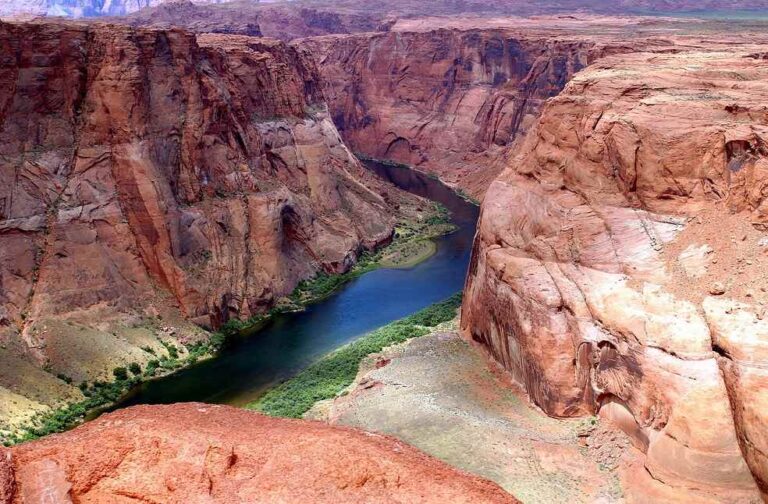United States: Seven states have reached a “historic consensus” on conserving water from the Colorado River in the western United States, a breakthrough in a region where persistent drought has made water allocation a point of debate.
As per a statement from the US Department of the Interior (DOI), the three states comprising the Colorado River Basin, including Arizona, California, and Nevada, have voluntarily committed to implementing measures aimed at conserving 3 million acre-feet of water, equivalent to 3.7 billion cubic metres, until 2026. This entails a reduction in water usage of approximately 13 percent over a span of three years.

“There are 40 million people, seven states, and 30 tribal nations who rely on the Colorado River Basin for basic services such as drinking water and electricity. Today’s announcement is a testament to the Biden-Harris administration’s commitment to working with states, tribes, and communities throughout the West to find consensus solutions in the face of climate change and sustained drought,” Interior Secretary Mr. Deb Haaland noted in a press release.
As climate change exacerbates drought in the western US, water flow along the Colorado River has tumbled by approximately 20 percent since the 1900s.
The upper basin of the river includes the states of Wyoming, Colorado, Utah, and New Mexico, with California, Arizona, and Nevada in the lower basin.

The new deal was reached when all seven states agreed to a proposal that would temporarily avert the possibility of the US Bureau of Reclamation imposing mandatory cuts on the lower basin states.
US President Mr. Joe Biden linked the deal, which he called an “important step forward”, to larger efforts his administration has taken to combat climate change and improve infrastructure, lauding the “record resources to support water conservation and improve the Colorado River’s long-term sustainability”.
According to the terms of the deal, California, Arizona, and Nevada will be granted $1.2 billion as federal compensation in return for reducing their water usage by 3 million acre-feet (equivalent to 3.7 billion cubic metres).



